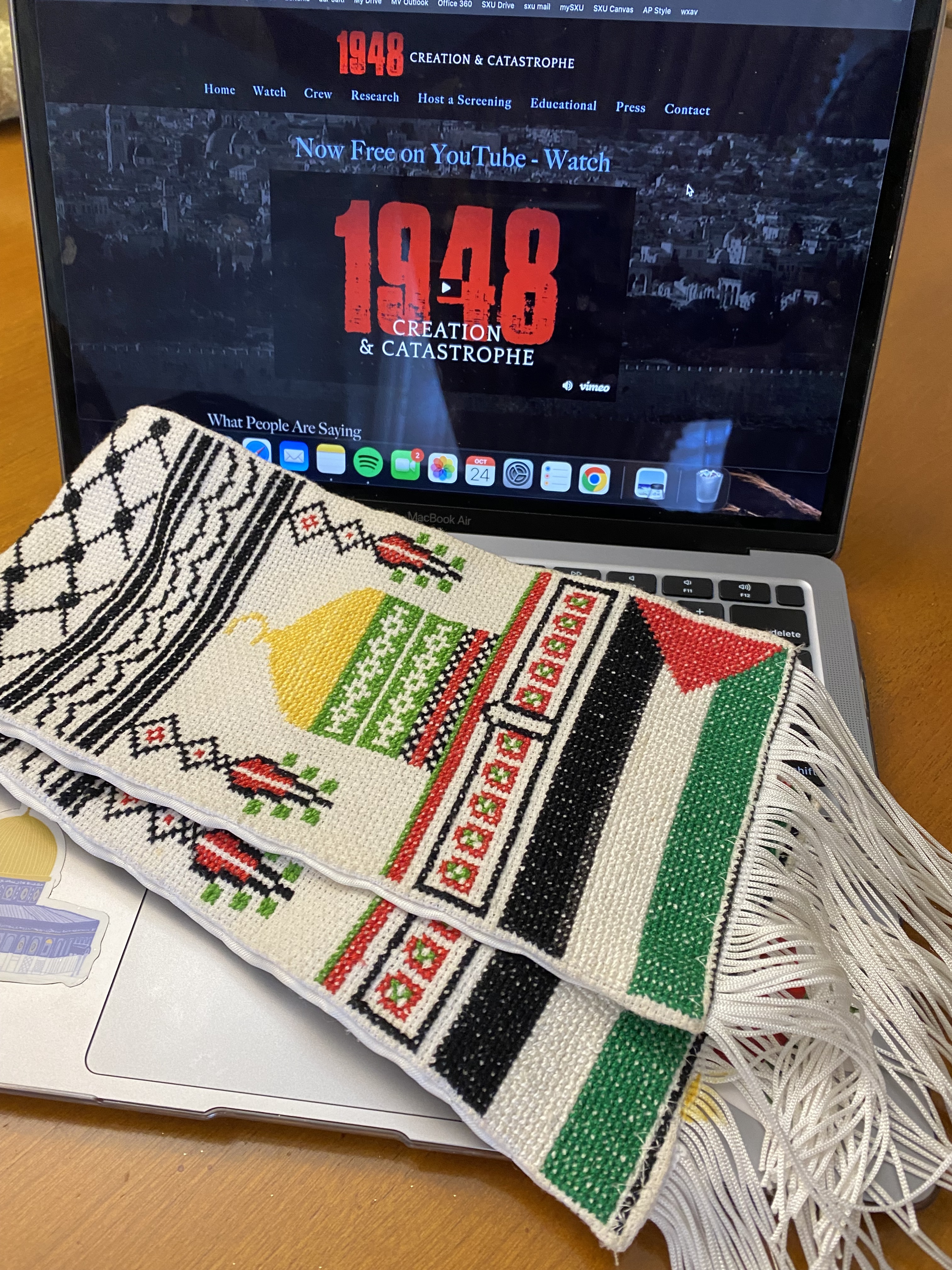Source: Mariam Jaber
The Palestinian Genocide is now entering it’s third week.
Many supporters of the Palestinian cause are wondering how they can help in these hard times. Here is a curated list on how one can be an ally to their Palestinian peers.
First and foremost, you need to help yourself in order to help others. You cannot be of the most help to Palestinians suffering if you do not fully understand their plight. In order to educate yourself, reading books and watching documentaries while listening to first-hand accounts of Palestinians are most useful.
Some books recommended to understand the Palestinian extremity, from different perspectives, are “The General’s Son: Journey Of An Israeli In Palestine” (2016) by Israeli-American activist Miko Peled and “The Question of Palestine” (1979) by Palestinian-American professor Edward Said.
Peled illustrates his life in an autobiography on what led him to discover Palestine and unlearn his Zionist teachings. Peled was born in Jerusalem to a very Zionist family: his father was a general in the Israeli military and his maternal grandfather was one of many to sign off on the Israeli Declaration of Independence.
It’s paramount to be able to read the first-hand perspective of someone who was born on the opposing side. If someone who was raised with hateful teachings of the ‘other side’ can unlearn all of it and begin to advocate for the oppressed, so can others. It takes an open mind and a big heart to be compassionate and understand the hurting of an oppressed people.
Author of “The Question of Palestine” (1979), Edward Said was a Palestinian-American professor at Columbia University. Said, born in Jerusalem in 1935, witnessed the Nakba, the Catastrophe, of 1948.
According to Penguin Random House, “The Question of Palestine” highlights, “the fatal collision between two peoples in the Middle East and its repercussions in the lives of both occupier and the occupied–as well as in the conscience of the West.”
“The Question of Palestine” has been since updated by Said to include information on the First Intifada (uprising) in Palestine, Lebanon’s invasion by Israel, and even the Gulf War. This book is recommended for those who want to understand the Middle East and why it is so destabilized, as well as to see a direct account of a Nakba survivor.
While it’s easy to read and absorb information, in order to fully understand and put these events into perspective, watching is often recommended.
A very important and highly recommended documentary to watch is “1948: Creation and Catastrophe” (2017) directed by Andy Trimlett and Ahlam Muhtaseb. This documentary highlights personal reports from Zionists and Nakba survivors alike.
Viewers are able to see for themselves the mindset of former soldiers in the Irgun and Haganah gangs who took part in ethnically cleansing Palestine to make way for the Zionist state. The former Zionist soldiers are remorseful for the war crimes they were complicit in.
Many Nakba survivors from various cities and towns across Palestine such as Yaffa, Akka, Deir Yassin, Haifa, Ramleh, Al-Lyd, among others, share their first hand experiences. Many survivors are seen getting emotional recounting their memories of the Catastrophe.
Moreover, allies can watch “1948: Creation and Catastrophe” (2017) by Trimlett and Muhtaseb for free on YouTube. English subtitles are available.
Once educated and equipped with knowledge on the history of what has led to this point in time, allies can help educate others. Keep sharing and posting about the genocide in Gaza. Everyone has the responsibility to teach and correct others.
If a historical inaccuracy is presented, don’t allow it to pass. While it may be a natural instinct to act with passion, it’s best to stay polite so as to not come off as aggressive or rude. The opposition will be less likely to listen to someone who is aggressive.
It’s one thing to do performative activism, it’s another thing to act. Along with educating others, do not hesitate to advocate for the Palestinians. Calling and emailing your representatives helps tremendously.
By calling and emailing your representatives, you are telling them you don’t appreciate your tax dollars funding genocide. By advocating, as an ally, you can help allow aid to pass into Gaza, as well as calling for a ceasefire.
Sometimes, representatives and senators brush off advocates’ calls for help. To amplify your voices and demand change, protesting is very much encouraged.
Follow your local Students for Justice in Palestine chapter online and keep up with protest dates. Reach out to a Palestinian friend and inquire about protests. Show the people in power that you mean business.
Years after the Holocaust, everyone wondered why no one spoke up and didn’t do anything during the genocide of the Jewish people. We cannot allow Palestine to be another Holocaust.
In these times, silence is dangerous. We have to be the change. We owe it to the Palestinians, past, present, and future.
Speak up and save Gaza.

